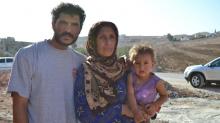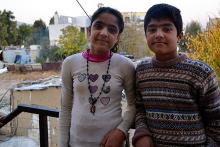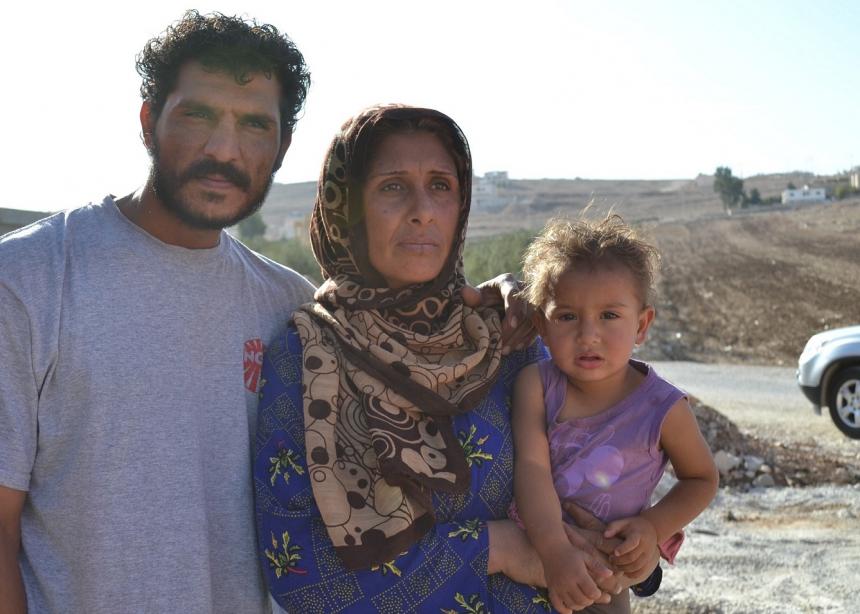Not long after a heart-wrenching photo of a refugee toddler lying lifeless on a Turkish beach hit the news, phones at Mennonite Central Committee (MCC) Canada began ringing off their hooks. People were calling to find out how they could help refugees fleeing violence in Iraq and Syria.
“It’s off the scale,” says Brian Dyck, MCC’s migration and settlement coordinator. “At any one time there’s 10 people looking at our refugee page on our website.”
The crisis—now it its fifth year—is the largest humanitarian response MCC has ever undertaken. And suddenly, thanks to a shocking photo, people are paying attention like never before.
A civil war in Syria and the advance in Iraq of the militant group known as Islamic State have contributed to the biggest migration crisis since the Second World War, according to the United Nations High Commissioner for Refugees. Families are fleeing Syria, where barrel bombs have become part of daily life. Many have drowned trying to cross the Mediterranean Sea in overcrowded and unseaworthy boats.
MCC has been responding to the crisis since 2012. To date, it has contributed $31 million in emergency relief to Syria, Lebanon, Jordan and Iraq.
And Canadians clearly want to help.
There are two main ways to do that, says Bruce Guenther, who works in MCC’s disaster response department. One way is to work with a church or community organization to sponsor a refugee family. Any group of five or more people interested in helping refugees come to Canada can begin by contacting the MCC refugee coordinator for their province.
Guenther says it is important not to forget the work MCC is doing to meet the needs of displaced people in the Middle East. As winter looms, thousands are in urgent need of food and shelter. UN agencies have been scaling back their efforts in the area because of lack of funds, Guenther says. MCC is looking for financial donations to provide food, fuel and blankets for displaced families in Iraq, Lebanon, Jordan and Syria.
Canadian Foodgrains Bank is also responding to the crisis through eight projects in Lebanon, Jordan and Syria. It has helped 375,000 people since the beginning of the conflict in 2012.
Canadians can also get involved by urging their government to improve its own refugee policy.
According to Ron Janzen, executive director of MCC Manitoba, there is a “bottleneck” in the refugee application process. He encourages Canadians to ask their candidates during this election season whether their government would actually increase the number of refugees sponsored in Canada and what they would do to streamline the complicated refugee application process that is slowing things down. Ottawa has promised to resettle 10,000 refugees over three years. Meanwhile Sweden, a country with a population a quarter the size of Canada’s, welcomed 80,000 refugees last year alone.
Welcoming refugees is in our Mennonite DNA. Since 1979, Canadian Mennonites have helped an estimated 20,000 refugees come to Canada through MCC programs. That makes sense, considering the fact that many Mennonites came to Canada as refugees themselves, says Janzen. “We’re appealing to Mennonites to embrace that heritage and that tradition, and to rally once again in that way.”
See also:
Welcome to Canada . . . because of Jesus
Syrian refugees: A sponsorship story

Abdel el-Razek, his wife and their youngest daughter stand in the Jordanian countryside, where they have managed to put up their tent. Back home in Syria, el-Razek was a car salesman. Now he works for minimal wages at various labouring jobs. (Photo courtesy of Canadian Foodgrains Bank)

Fatima and her brother Muhammed were forced from their home in Syria when violence overtook their town. They now live in a chicken barn in Lebanon. The farmer who owned the barn found it more profitable to rent out his shed to Syrian refugees rather than continue raising chickens. (Photo courtesy of Canadian Foodgrains Bank)



Add new comment
Canadian Mennonite invites comments and encourages constructive discussion about our content. Actual full names (first and last) are required. Comments are moderated and may be edited. They will not appear online until approved and will be posted during business hours. Some comments may be reproduced in print.